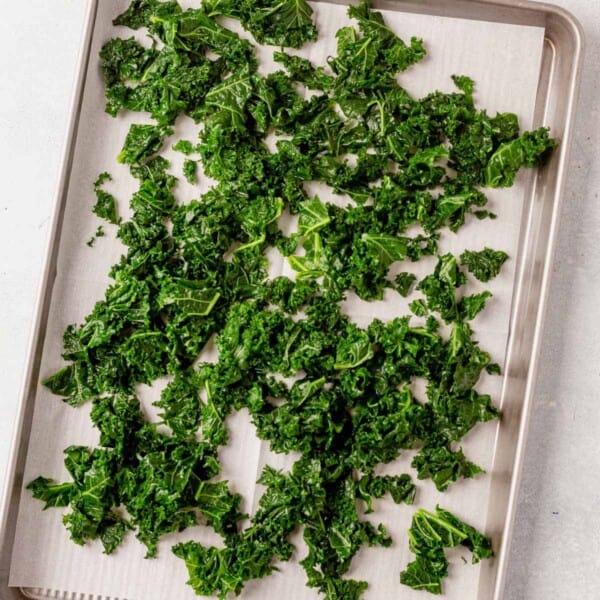The Benefits of Freezing Kale

- Kale is a highly nutritious leafy green that’s packed with essential vitamins, minerals, fiber, and antioxidants, among other health benefits.
- Minimal waste: Save fresh kale and prep ahead up to 6 months for holiday cooking or savory dinners.
- Easy methods: Learn different options of freezing kale.
- Versatile: Plenty of ideas for using the kale in future meals.
Need to use up frozen kale? Try this rich and healthy zuppa toscana or kale salad with goat cheese for dinner, or this delicious tropical kale smoothie, sweet potato hash, and fresh green juice recipe to start the day.
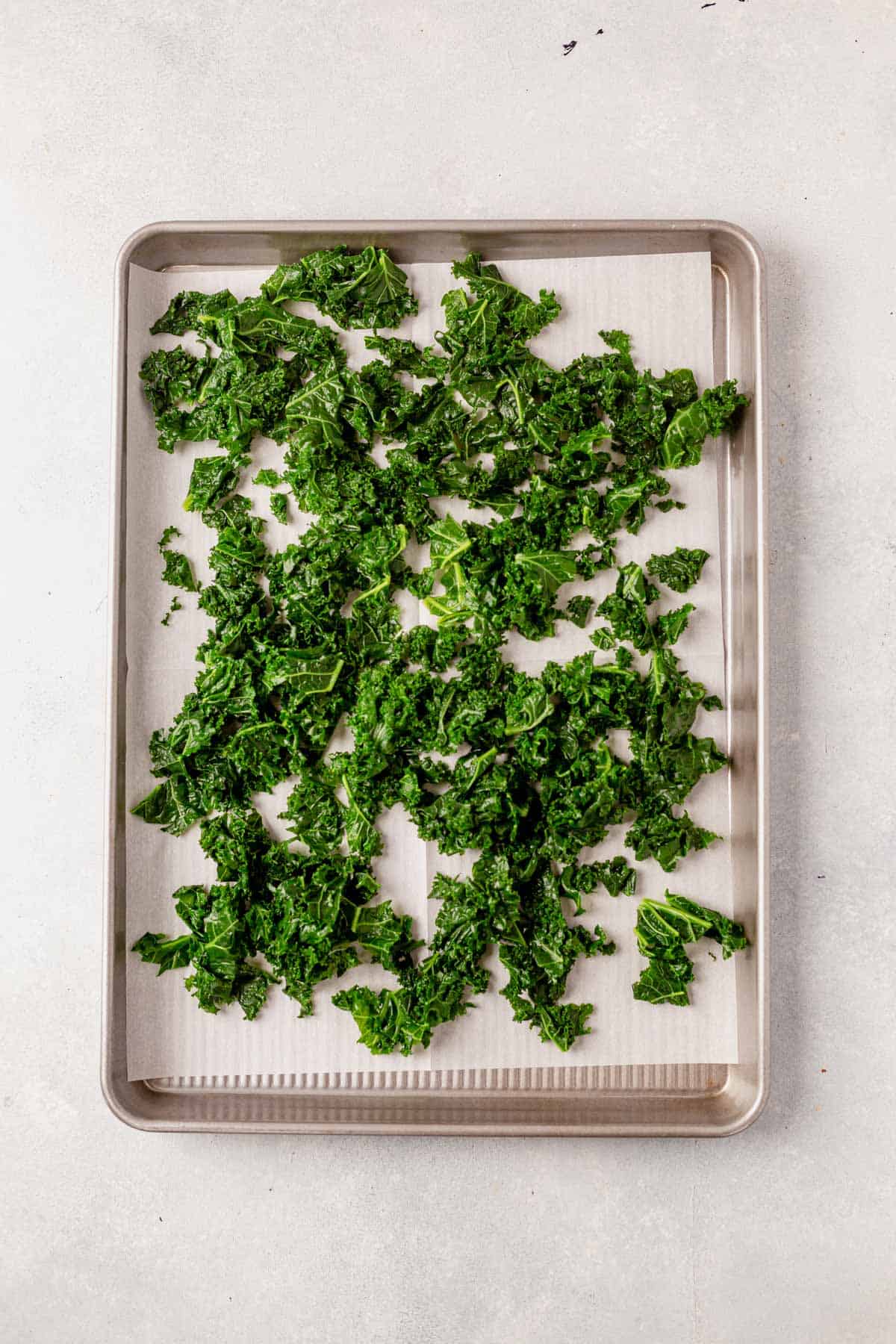
Types of Kale
Kale is a highly nutritious (dare I say superfood?) leafy green vegetable that comes in several different varieties. Here are some of the most common types of kale plants:
- Curly Kale: This is the most widely available type of kale and the one most common type you’ll find at the grocery store. It has tightly curled, ruffled leaves that are slightly bitter in flavor.
- Dinosaur Kale (Lacinato Kale): This is also known as Tuscan kale, and has long, flat, blue-green leaves with a more tender texture and sweeter flavor than curly kale.
- Red Russian Kale: This type of kale has frilly leaves that are a mix of red and green, with a mild, slightly sweet flavor.
- Siberian Kale: The blue-green leaves are very hardy and cold-tolerant, making it a good choice for fall and winter gardens.
- Ornamental Kale: These leaves come in shades of white, pink, purple, and red. They’re edible, but they are often tough and bitter.
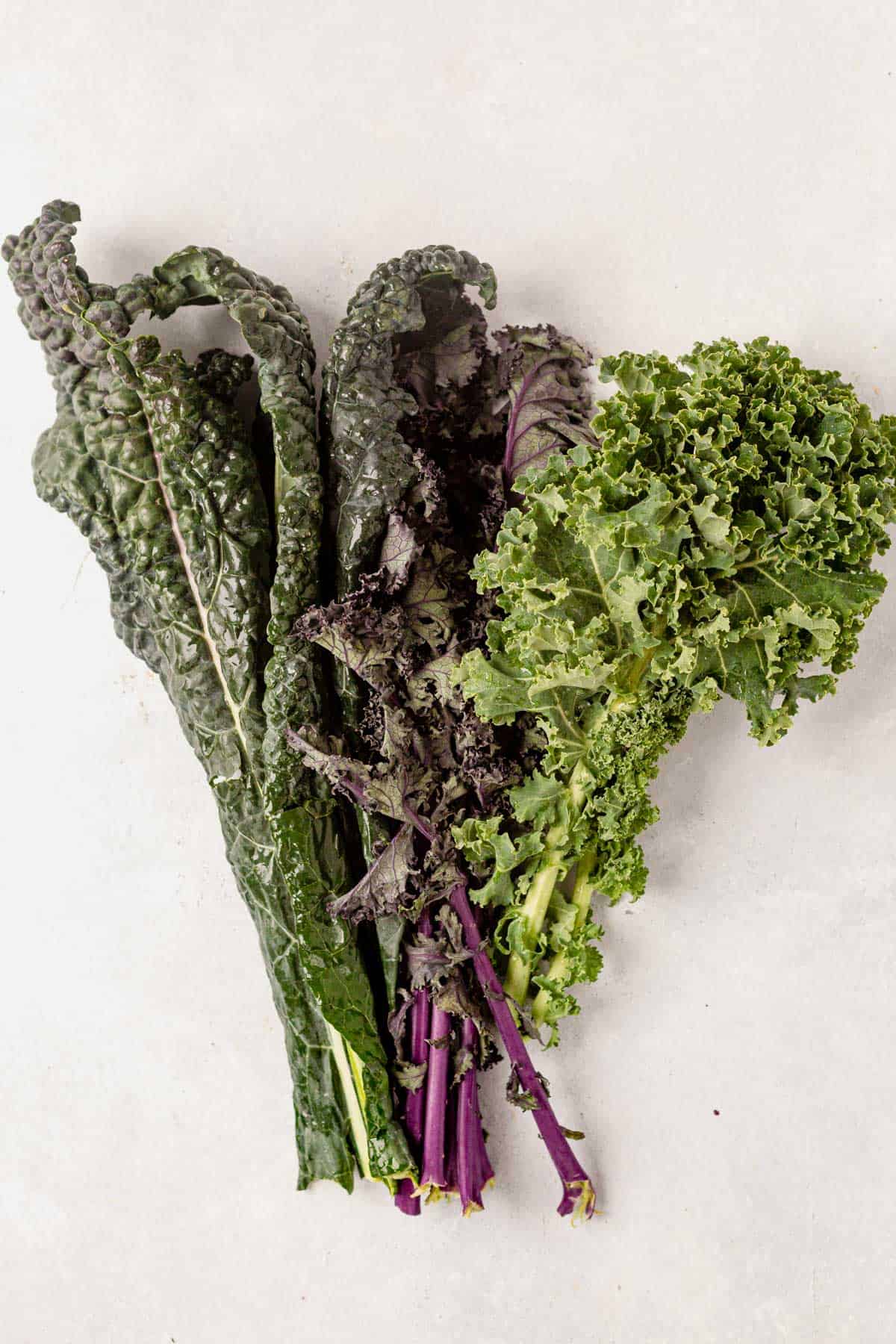
Blanching is Best
Freezing fresh kale is a simple process that helps to preserve its freshness and flavor for several months. The best way to freeze kale is to quickly blanch it in boiling water for 2-3 minutes to bring out the vibrant color and preserve its flavor. You can freeze raw kale, but it may have a more bitter flavor. Here are the instructions on with and without blanching.
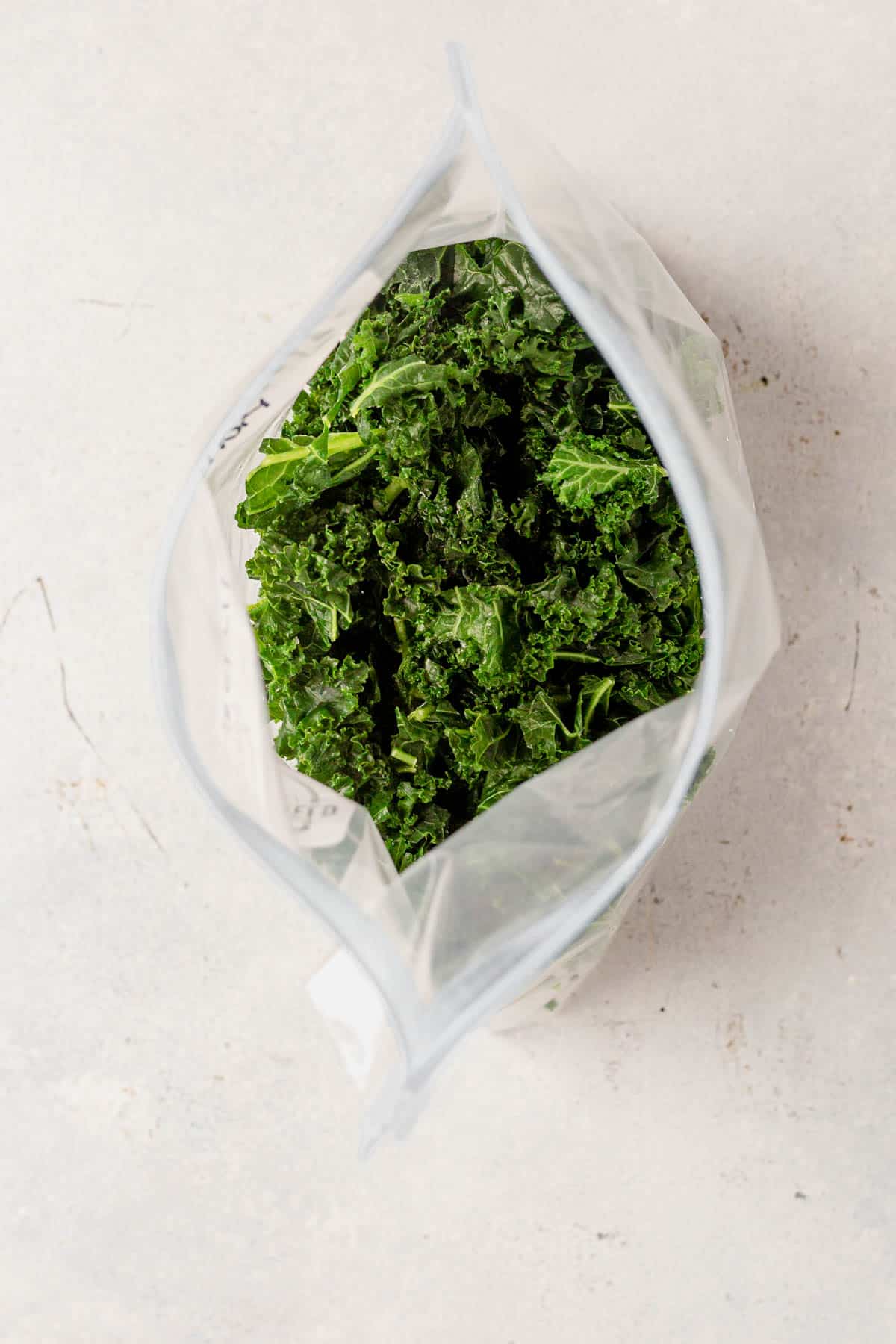
How to Blanch Kale for Freezing
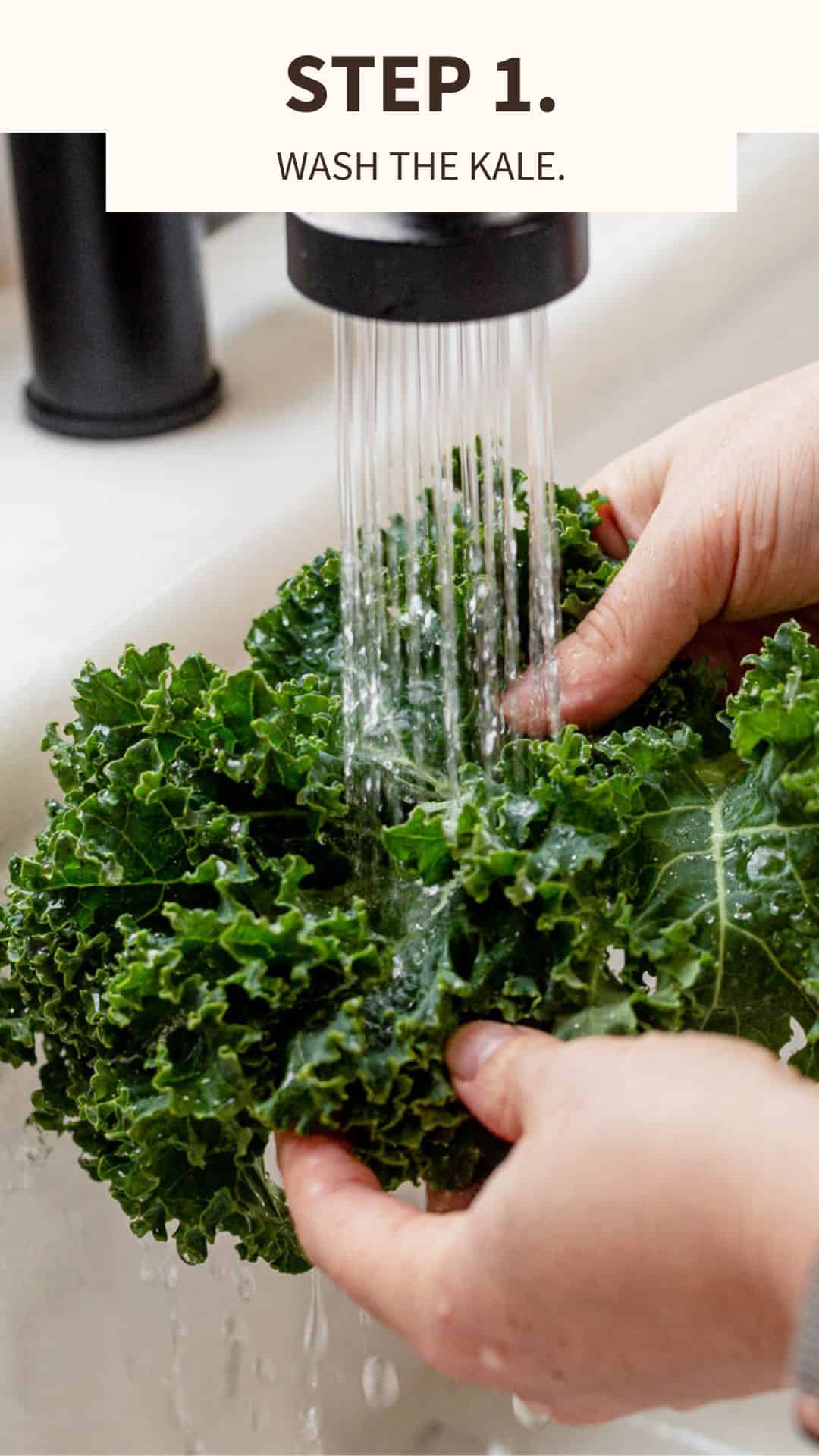
- Wash and dry the kale leaves thoroughly.
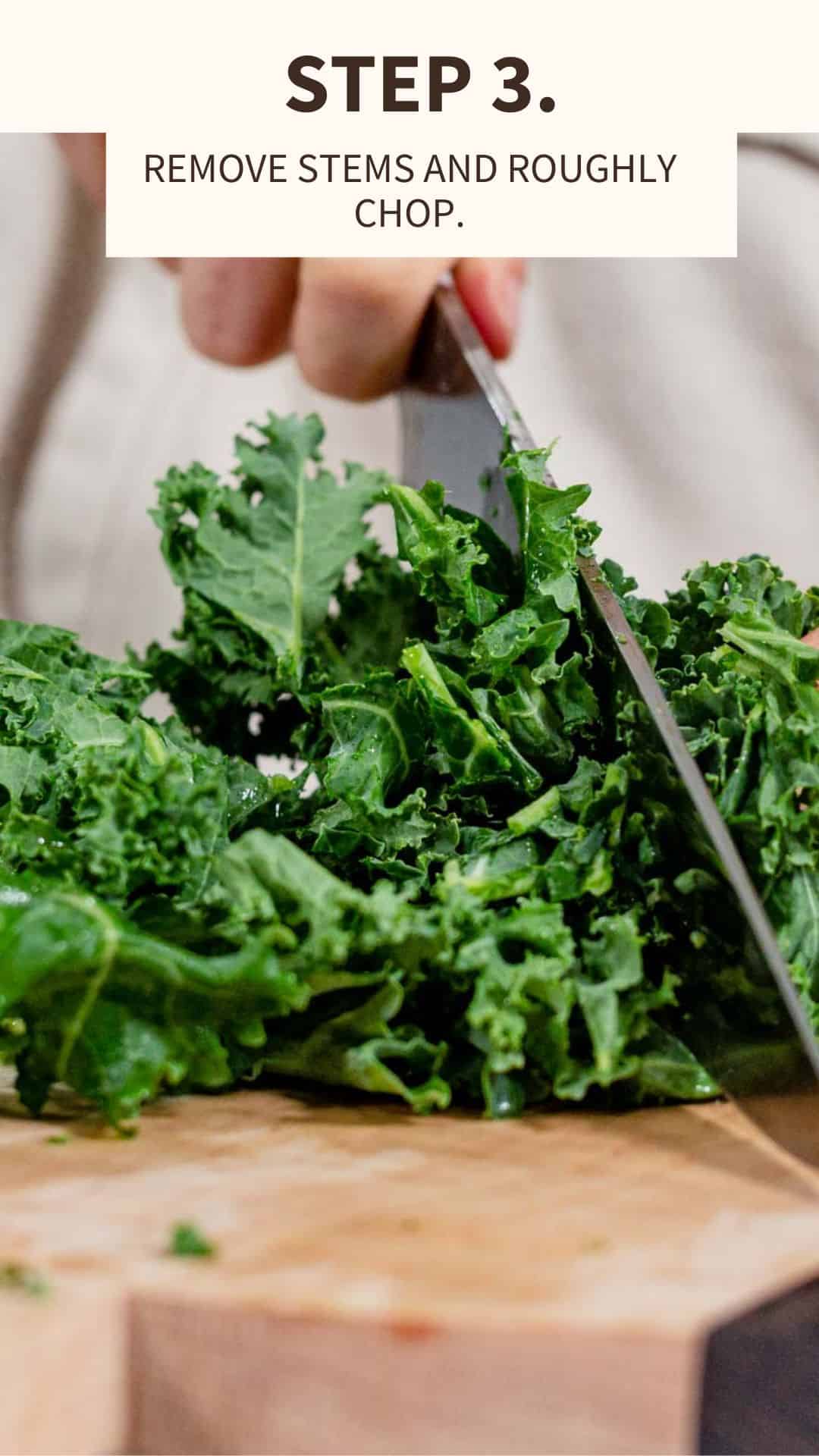
- Remove the tough kale stems and chop the leaves into bite-sized pieces.
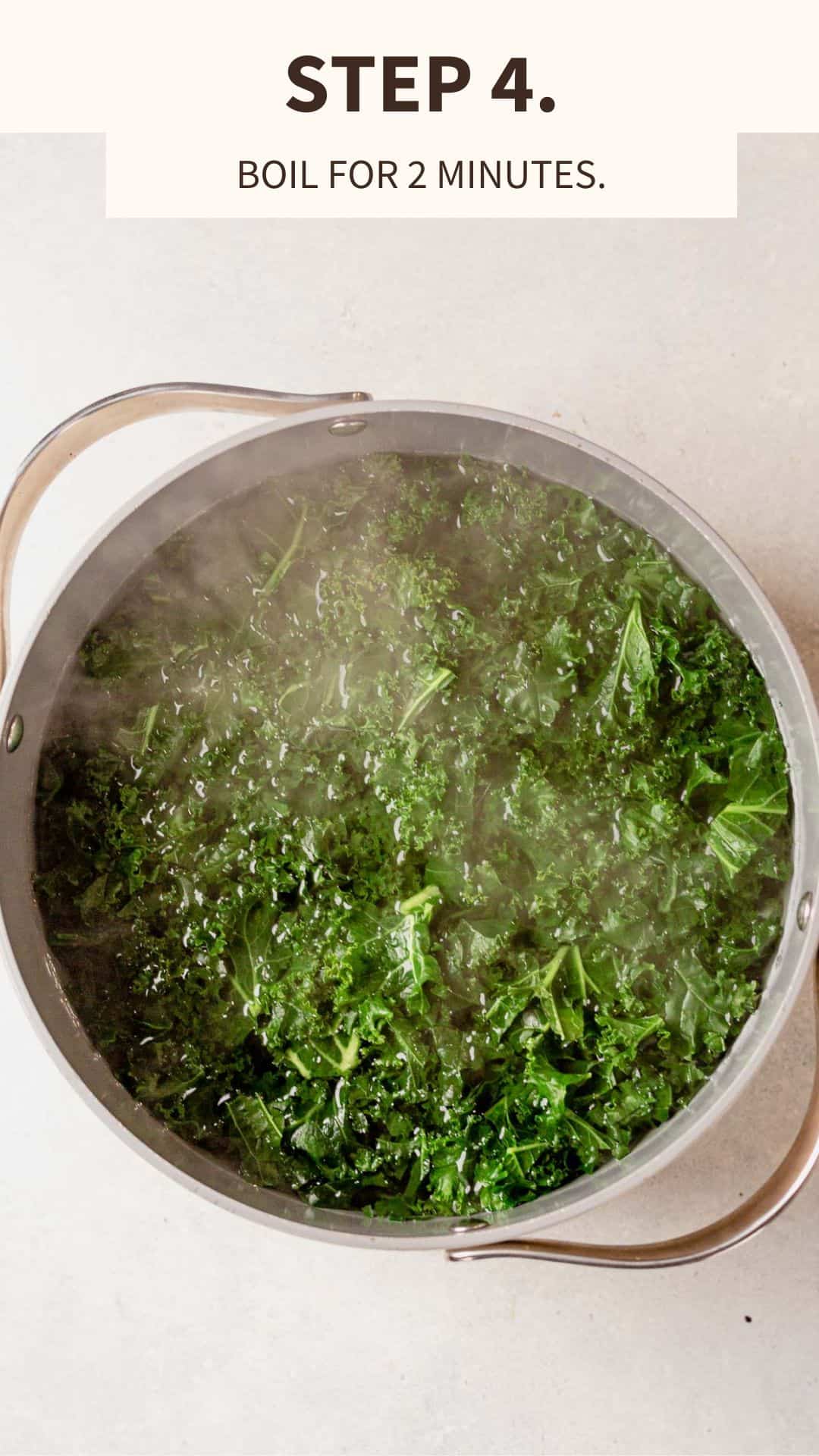
- Boil a large pot of water and add a handful of kale leaves at a time. Boil for 2-3 minutes.
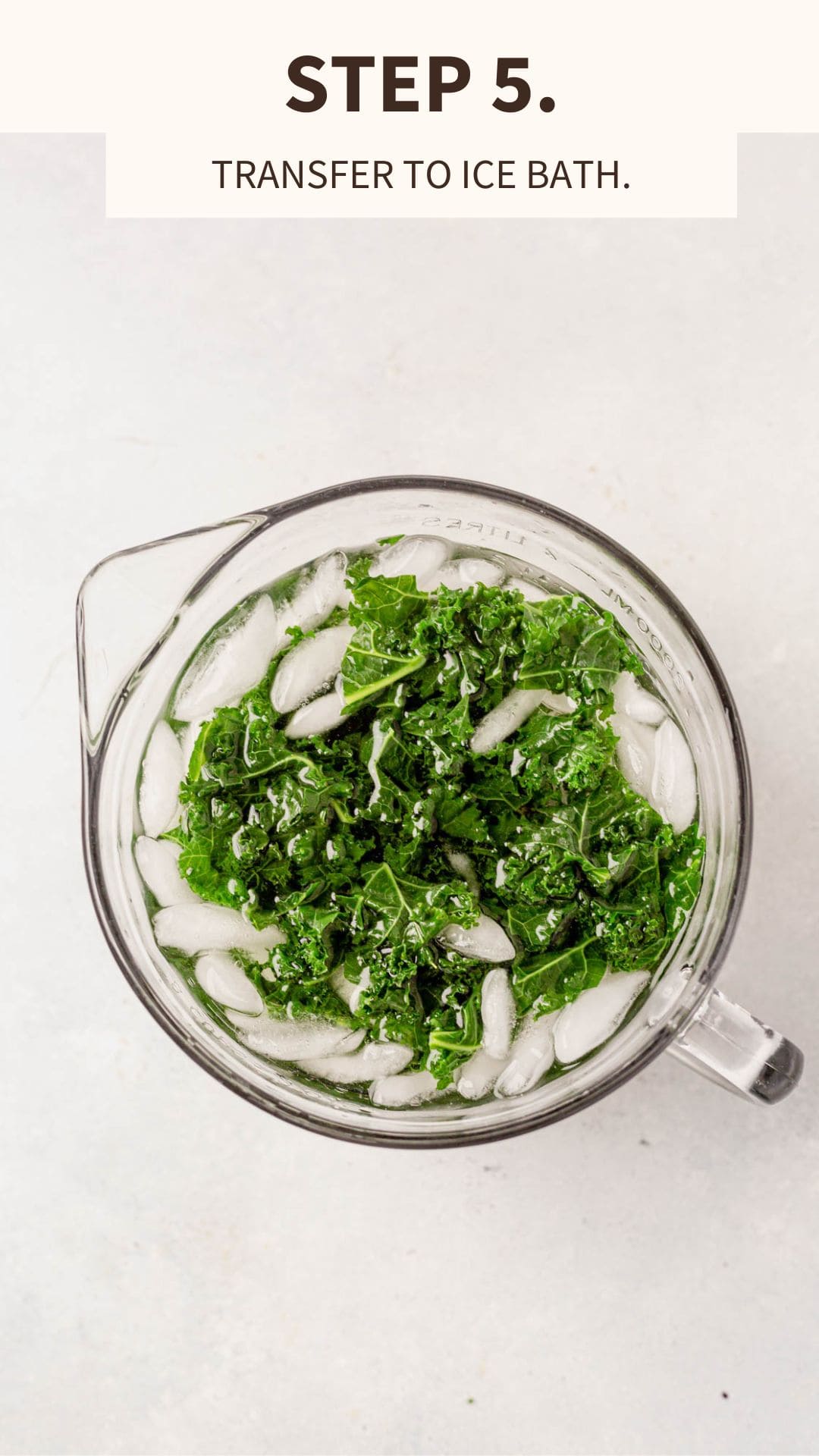
- Then immediately transfer the kale to an ice bath (a large bowl of ice water). Let it cool for a few minutes.
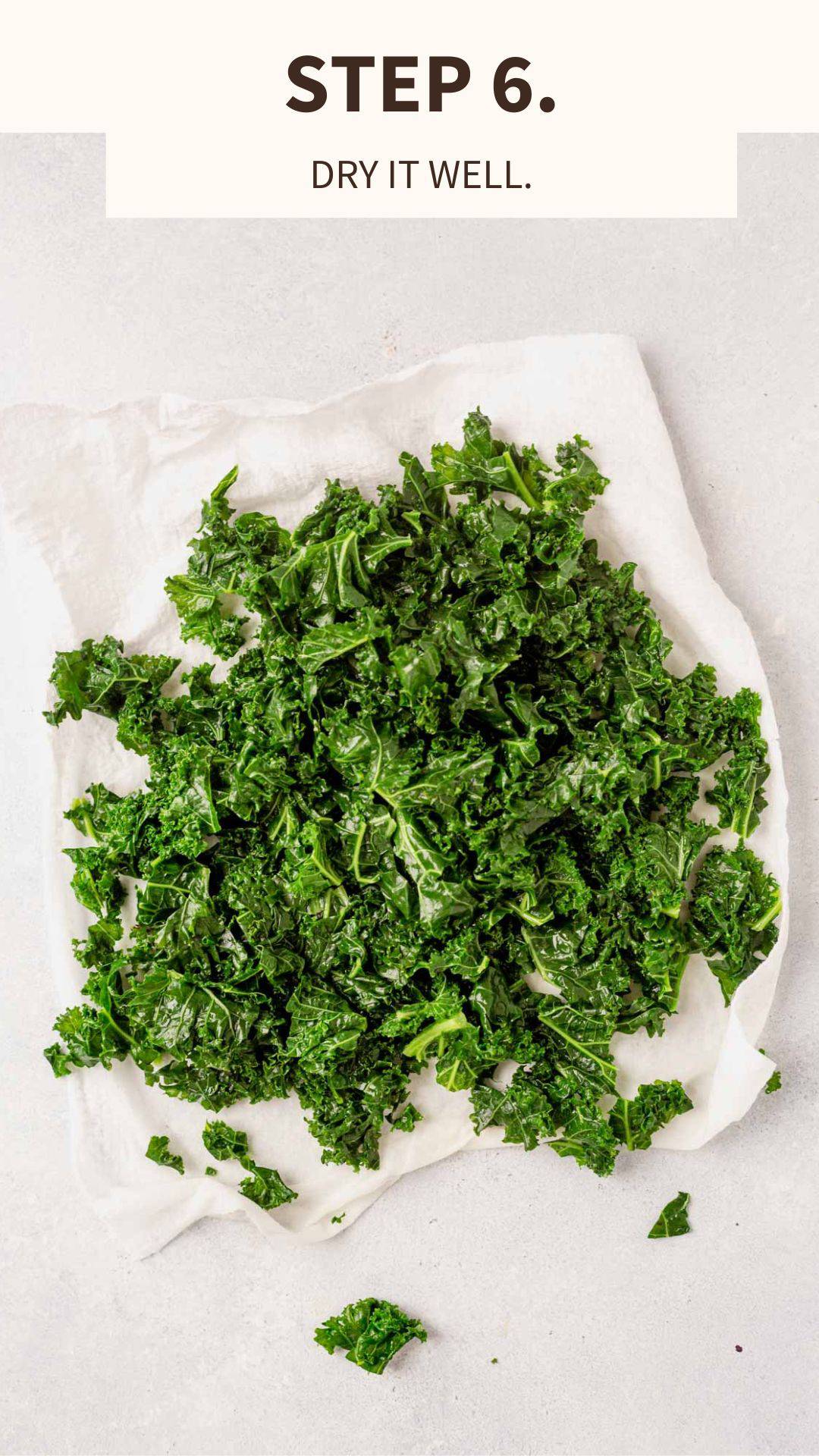
- Drain the kale thoroughly and pat dry with paper towels or a clean kitchen towel to remove excess water.
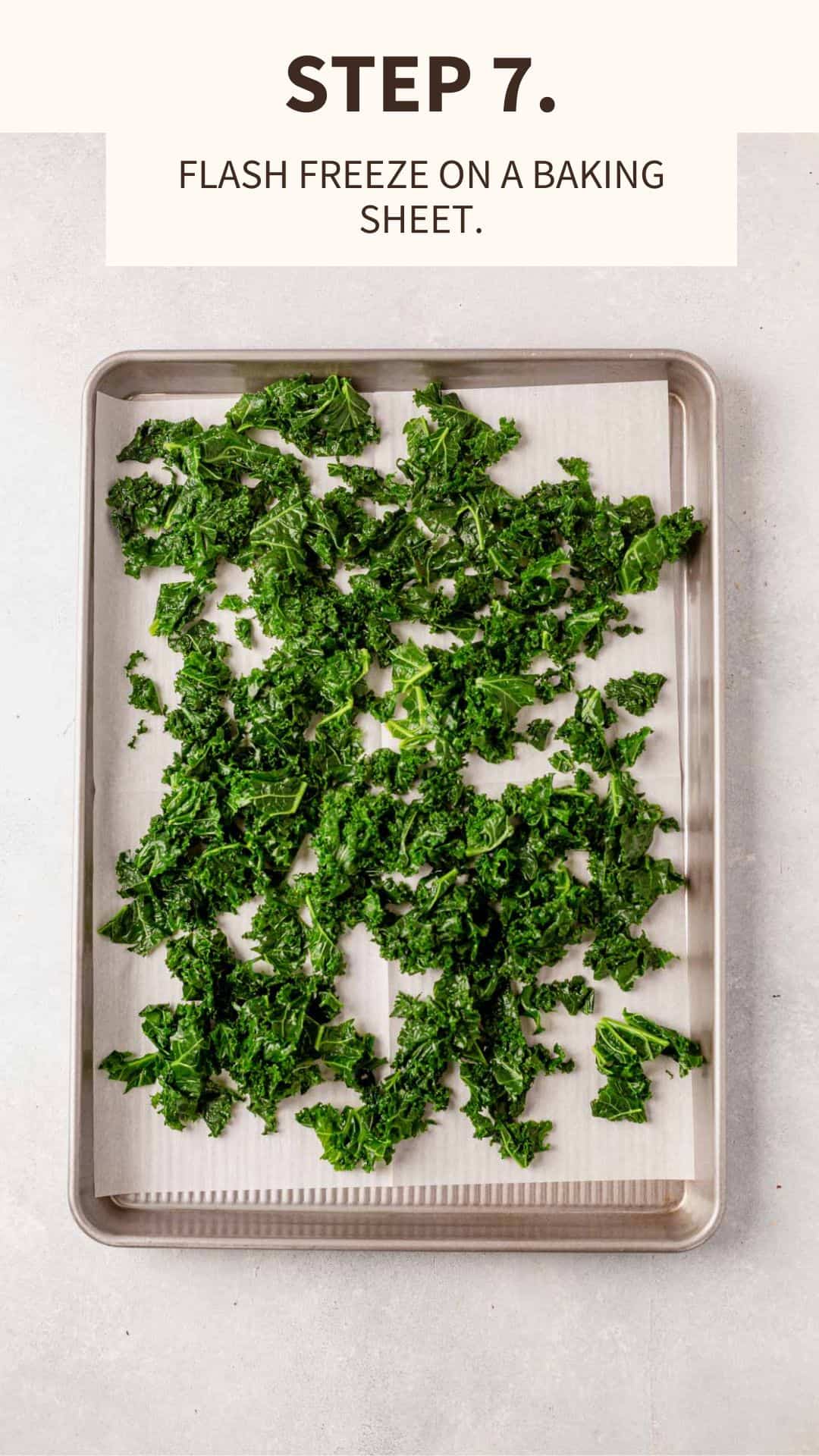
- Lay the blanched kale on a large cookie sheet and flash freeze for 20-30 minutes until each kale leaf is frozen.

- Transfer the frozen kale to an airtight container or freezer bag until you’re ready to use them. Frozen kale will stay fresh for up to 6 months. Use the kale directly in the recipe you’re following or thaw overnight in the fridge.
Can You Freeze Kale Without Blanching?
Yes, you can freeze kale without blanching, but the texture and flavor of the kale may change after being frozen and thawed. When kale is not blanched before being frozen, it can become tough and develop an off flavor.
If you skip the cooking process, it’s especially important to keep it in an airtight freezer-safe bag or container, removing as much air as possible.
To freeze unblanched kale, wash it really well and remove as much excess moisture as possible to avoid freezer burn. You could throw them in a salad spinner to get some of the moisture off. Next, chop the kale leaves and place them in a freezer bag and remove as much air as possible. Lay the bag of kale flat in the freezer to save space.
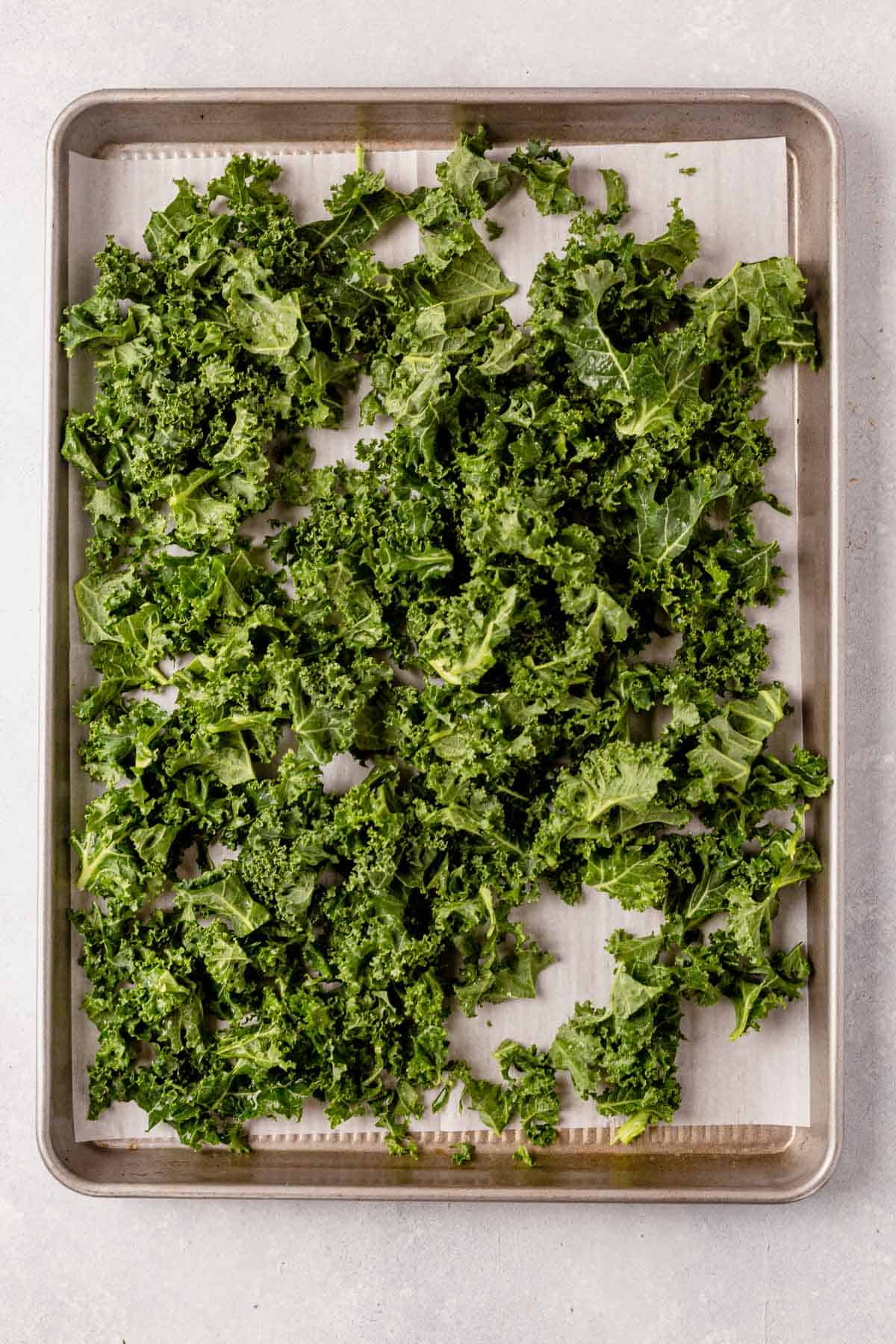
How to Freeze Kale for Smoothies
My favorite way to save time in the morning is to create a freezer smoothie pack to throw in the blender. Freezing kale and adding it to a baggie with other fruits and veggies means you can dump it into the blender with milk for a quick breakfast.
Follow the steps to blanch the kale and flash and freeze it on a baking sheet. Place as much kale as you want in a small bag or container with the rest of the smoothie ingredients.
Another way to do it: You can also freeze kale in ice cube trays by themselves or with some almond milk to throw in smoothies. The frozen ingredients will help make your smoothie fresh, thick, and creamy.
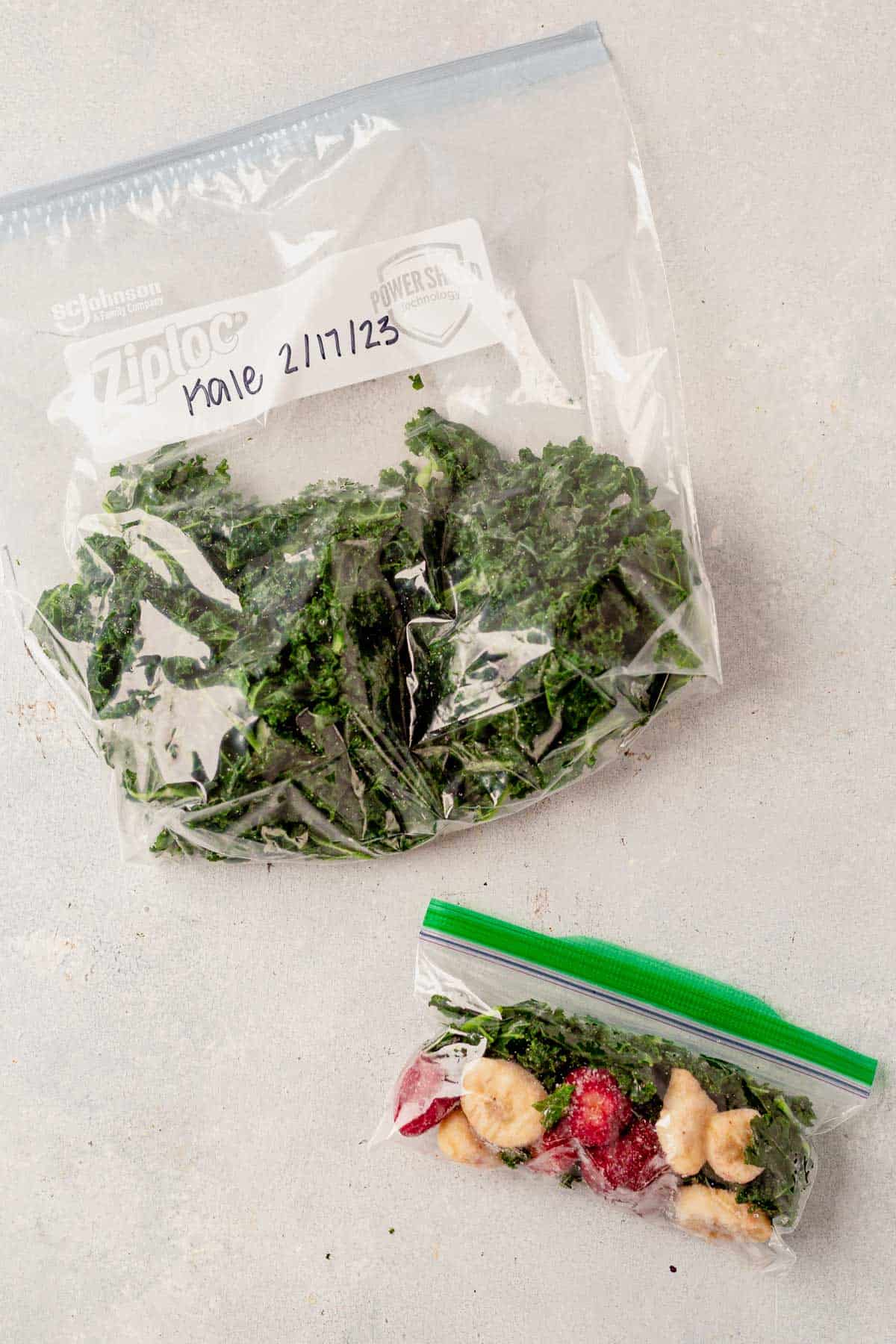
Molly’s Top Tips
- If adding to muffins or an egg dish, allow the excess water to drain after the kale thaws.
- The texture of thawed kale may change slightly and it may not be as crisp as fresh kale, but it’s still a nutritious and tasty addition to your meals.
- Write the date and serving size right on the bag before freezing.
- Freeze kale for winter soups, casseroles, or green holiday sides to make holiday meal prep a breeze.
How to Freeze Kale
Save this Recipe!
Ingredients
- 10 ounces fresh kale any variety
Instructions
Freezing Blanched Kale
- Wash and dry the kale thoroughly. Remove the tough kale stems and chop the leaves into bite-sized pieces.10 ounces fresh kale
- Boil a large pot of water and carefully add the chopped kale. Boil for 2-3 minutes, then immediately transfer the kale to an ice bath (a large bowl of ice water). Let it cool for a few minutes.
- Drain the kale thoroughly and pat dry with paper towels or a clean kitchen towel to remove any excess water to prevent freezer burn.
- Lay the blanched kale on a large cookie sheet and flash freeze for 20-30 then transfer them to an airtight container or freezer bag and store in the freezer for up to 6 months.
Freezing Fresh Kale
- Wash the raw kale and pat it dry really well with paper towels or a clean kitchen towel. Arrange the raw kale in an even layer on a large-rimmed baking sheet and flash freeze for 20-30 minutes. Transfer it to an airtight container or freezer bag and freeze it for up to 6 months.
Notes
Nutrition
Nutrition information is automatically calculated, so should only be used as an approximation.
FAQs
Blanch kale in boiling water for 2-3 minutes before transferring it to an ice bath to stop the cooking process. Pat the blanched kale dry before flash freezing on a baking sheet. This whole process takes less than 10 minutes.
Blanching kale before freezing it helps prevent it from developing a bitter taste and it also helps maintain the vibrant green color. If you have the time and tools, it’s better to blanch kale before freezing, although both will work.
Remove the tough, thick stems from the kale leaves by using your hands to strip the leaves away from the stems, or use a knife to cut them away. Stack the kale leaves on top of each other and chop them lengthwise then crosswise, similar to dicing a pepper.
When freezing kale, always use containers that are airtight, freezer-safe, and able to withstand the extreme temperatures of a freezer, like plastic bags, glass jars with lids, or plastic freezer containers. Our favorite way is freezer bags to lay flat and save space.
Freezing kale can cause some loss of nutritional value, but it’s generally minimal. Kale, like many other leafy greens, is a good source of vitamins, minerals, and antioxidants, and freezing can help to preserve much of this nutrition. Blanching the kale before freezing can help to minimize the loss of vitamins, especially water-soluble vitamins like vitamin C and some B vitamins.
If you plan to use the frozen kale in a cooked dish, such as soup or stew, you can add it directly to the pot without thawing. The kale will thaw as it cooks and will blend into the dish seamlessly. You can also place frozen kale directly into a smoothie. Thaw the kale overnight in the refrigerator first if you plan to use it in a raw dish, like a salad, or if you plan to saute it because frozen kale will release too much moisture into the pan.
Absolutely. Just wash, dry, and freeze. No need to remove stems unless preferred.
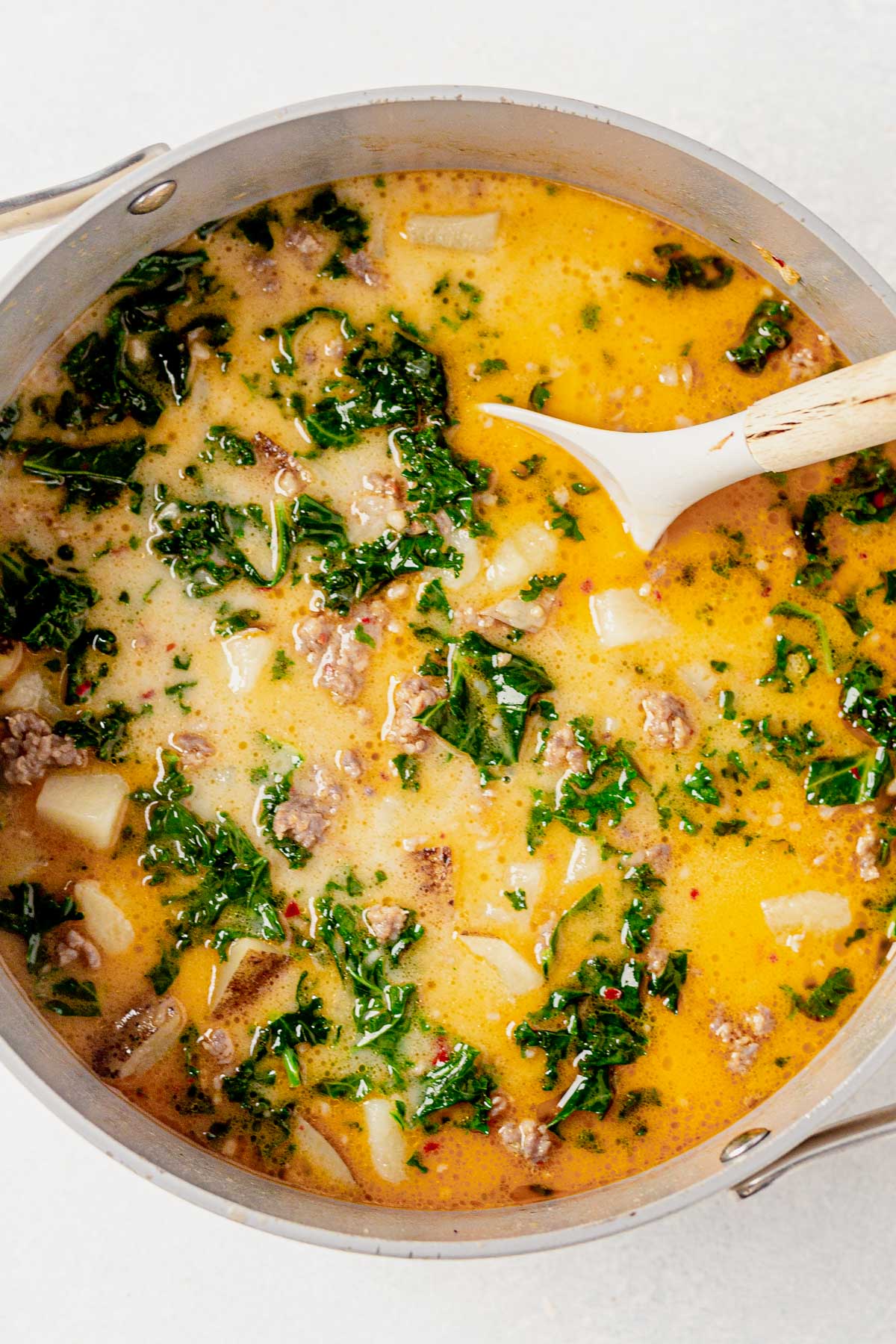
This post may contain affiliate links. Read our disclosure policy.

